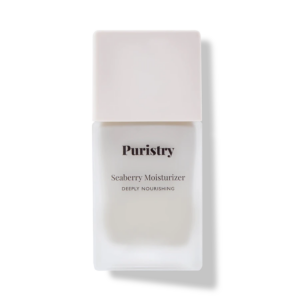The Beauty Battle: Natural vs. Synthetic

In today’s beauty industry, the market is flooded with a wide range of moisturizers, each claiming to be the best for your skin. However, when it comes to choosing between natural and synthetic moisturizers, it’s important to consider not only their impact on your skin but also their effects on the environment. In this article, we will explore the pros and cons of natural and synthetic moisturizers, shedding light on their composition, benefits, and potential drawbacks.
Understanding Natural Face Moisturizers
The Power of Nature: Benefits and Ingredients
Natural face moisturizers are derived from botanical sources and are known for their gentle yet effective properties. These moisturizers harness the power of nature, utilizing plant-based ingredients that nourish and hydrate the skin. One popular ingredient in natural moisturizers is hyaluronic acid, a naturally occurring substance in the body that helps retain moisture, resulting in plump and hydrated skin.
Suitable for Sensitive Skin
One of the major advantages of natural face moisturizers is their suitability for sensitive skin types. Unlike synthetic alternatives, natural moisturizers are generally free from harsh chemicals, fragrances, and artificial additives that can irritate or trigger allergies in sensitive individuals. Hyaluronic acid moisturizers, in particular, are known for their soothing and non-irritating properties, making them a great option for those with sensitive skin.
The Appeal of Synthetic Moisturizers
Technological Advancements: Potency and Customization
Synthetic moisturizers are formulated using advanced technologies that allow for precise control over the ingredients and their concentrations. This enables skincare brands to create highly potent moisturizers that may offer visible and rapid results. Synthetic moisturizers often contain synthetic versions of ingredients found in natural moisturizers, including hyaluronic acid, allowing for targeted and customizable skincare routines.
Extended Shelf Life and Stability
Unlike their natural counterparts, synthetic moisturizers are designed to have a longer shelf life. Due to their synthetic nature, these products are less prone to degradation and spoilage, ensuring that they remain effective for a longer period. This enhanced stability makes synthetic moisturizers a practical choice for those who prefer products with a longer lifespan.
The Environmental Considerations
Impact of Natural Ingredients
Natural moisturizers are often perceived as more eco-friendly due to their plant-based ingredients. However, it’s important to consider the broader impact of sourcing these ingredients. While natural moisturizers promote sustainability when sourced ethically and responsibly, certain plant extracts may contribute to deforestation or habitat destruction if not properly regulated. As a conscious consumer, it’s crucial to support brands that prioritize sustainable sourcing practices.
Synthetic Ingredients and Chemical Pollution
Synthetic moisturizers may have a greater environmental impact due to the chemicals used in their production. During the manufacturing process, synthetic ingredients can generate pollution and waste that can harm ecosystems. Additionally, certain synthetic chemicals, such as parabens and phthalates, have been linked to potential ecological damage when they enter water systems. Opting for brands that prioritize environmentally friendly manufacturing processes and use biodegradable or recyclable packaging can help mitigate these concerns.

When choosing between natural and synthetic moisturizers, there are various factors to consider. Natural moisturizers offer gentle ingredients suitable for sensitive skin, while synthetic moisturizers harness technological advancements for potent and customizable skincare solutions. From an environmental standpoint, it’s important to support brands that prioritize sustainability and minimize the use of harmful chemicals. Ultimately, the choice between natural and synthetic moisturizers depends on your individual preferences, skin type, and commitment to the well-being of both your skin and the environment. Remember to always make informed decisions and prioritize what aligns best with your values and priorities. Whether you opt for a natural face moisturizer with nourishing plant-based ingredients like hyaluronic acid or choose a synthetic moisturizer for its potency and customization options, it’s crucial to be an informed consumer. Consider your skin type, preferences, and environmental consciousness when making your decision.
Additionally, supporting brands that prioritize sustainability and eco-friendly practices is essential in minimizing the environmental impact of skincare products. Look for companies that ethically source their natural ingredients and utilize environmentally friendly manufacturing processes. By choosing biodegradable or recyclable packaging, you can further contribute to a greener beauty routine.
In the end, there is no one-size-fits-all solution when it comes to natural vs. synthetic moisturizers. It’s about finding the right balance for your skin’s needs while considering the long-term effects on the environment. So, take the time to research and experiment, and remember that your skincare choices can make a difference for both your skin and the world around us.

